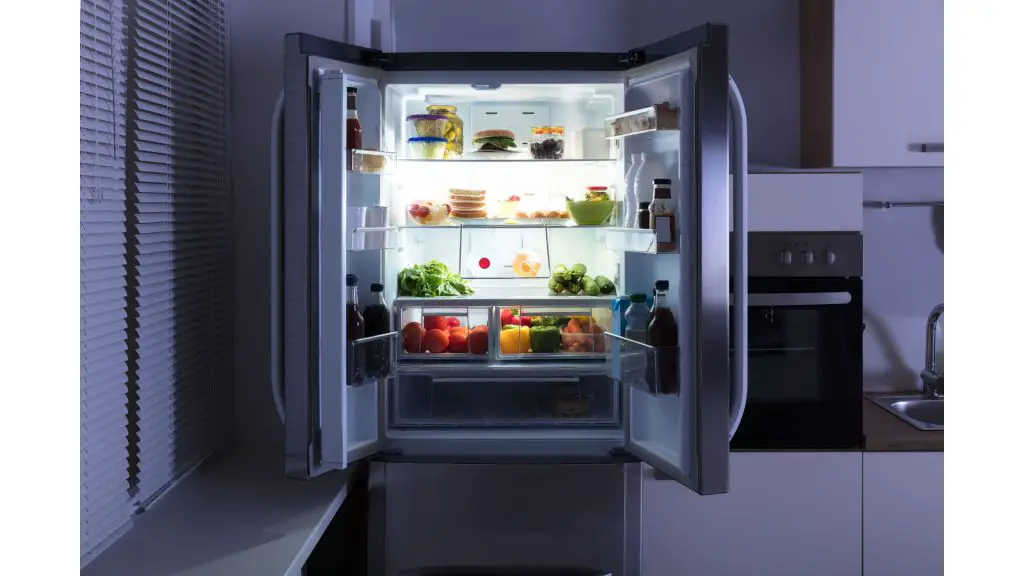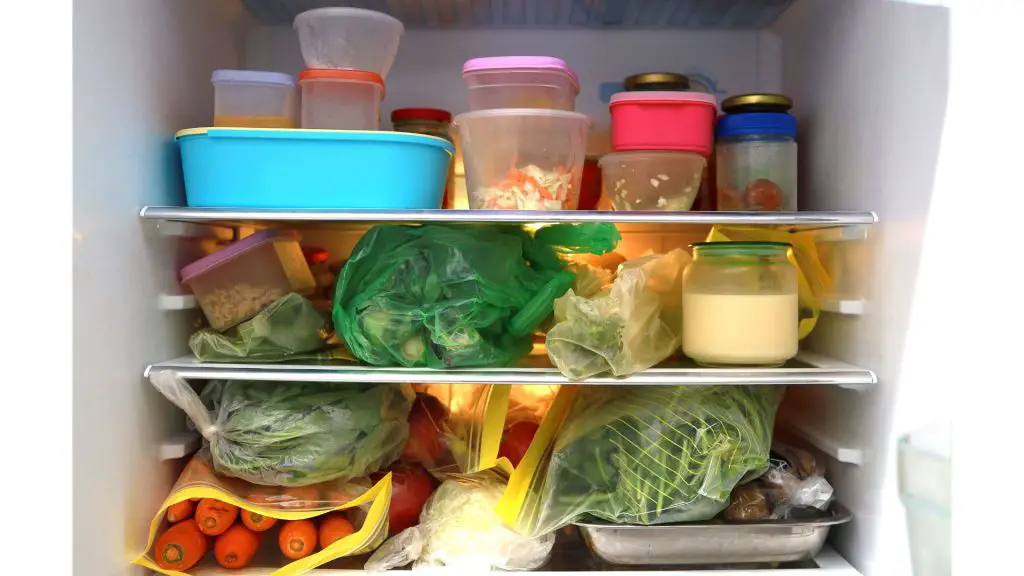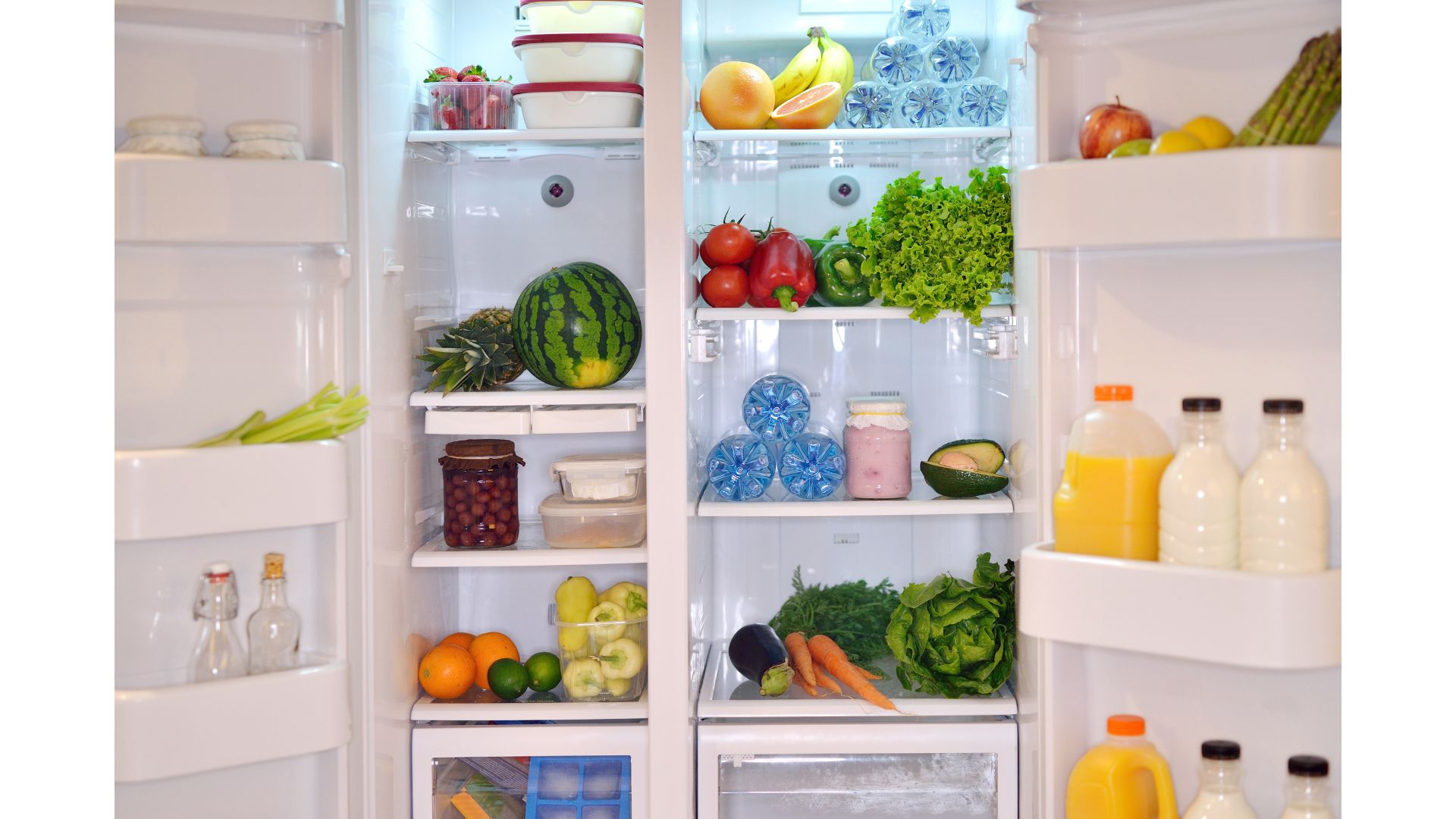It sounds like a sensible energy-saving strategy to turn an appliance off every night. But is that true for refrigerators?
Yes, you can turn a refrigerator off every night. Many experts will discourage you from doing so. Fridges are not like other appliances. They are designed to work 24 hours a day, seven days a week, without breaking down. You don’t need to give them breaks at night by turning them off.
Admittedly, refrigerators don’t work nonstop, despite what many laypeople think. They have a thermostat that cuts the power once the temperature exceeds your settings. Additionally, modern fridges have a defrost cycle. According to American Home Shield, the defrost cycle runs every 12 – 15 hours to combat the ice accumulating on the coils.
The defrost cycle interrupts the refrigeration cycle. In fact, you should worry if your refrigerator never appears to turn off. A fridge that runs all the time has a fault. You should troubleshoot everything, including the defrost heater tube, door gaskets, condenser fan motor, evaporator fan motor, and more.
A healthy refrigerator should turn off from time to time, but only when it chooses. The fridge determines when it should activate and deactivate. You shouldn’t interfere with this process by unplugging the refrigerator every night.
That being said, you won’t harm the fridge by adopting this habit. Simply put, you can do as you wish.
How Much Energy Does A Refrigerator Use And How Much Could You Save By Turning It Off Every Night?

This is where many people go wrong. They think turning the refrigerator off at night saves electricity, but it doesn’t. The refrigerator’s energy consumption depends on the model. These appliances typically use 300 – 800 watts.
But there’s a difference between starting and running watts. A fridge that uses 800 watts at startup can easily run on 200 watts or less during normal operations. Energy Sage has a table showing the amount of power a 500W refrigerator (167 watts of actual energy usage) uses in an hour (0.167kWh).
That number jumps to 4kWh if you use the appliance all day. But why can’t you lower that figure by unplugging the appliance at night? What if you reduced the usage to 16 hours each day, keeping the device off for the final eight hours of the night?
Here’s your problem. The Food and Drug Administration wants consumers to keep the freezer temperature at 0 degrees F (or below) and the refrigerator temperature at 40 degrees F (or below).
The appliance lowers the temperature gradually until it reaches those figures. It can take a new fridge up to 24 hours to generate the cold temperature your food requires. What happens when you turn the appliance off at night?
The temperature will rise. What happens when you turn the fridge back on the next morning? Will it continue running as usual? No, it won’t because the temperature is wrong. The appliance will use even more power to lower the temperature back to the correct point.
This will negate your savings. ITV News ran a story in July 2022 in which food banks in Cornwall told desperate families to stop turning their appliances off as a cost-cutting measure. The Cornwall council entered the conversation and explained that turning the fridge off was less economical than letting it run all night because of all the energy the appliance expended as it lowered the temperature again the following day.
Turning the refrigerator off only works if you intend to keep it off for long periods. For instance, when you go on vacation for several weeks. However, switching it off every night is counterproductive.
It is also worth noting that fridges use less energy at night. Think about it. First of all, ambient temperatures are low, so the appliance doesn’t work as hard to maintain low temperatures internally.
Secondly, everyone is asleep. As such, the door stays closed. During the day, people keep opening the door. This lets the cold air out while allowing warm air to enter, compelling the fridge to push harder to preserve your food.
At night, the door remains firmly shut. The fridge can coast once it reaches its core temperature. Therefore, turning it off is a waste of time.
Can Turning Off A Refrigerator Every Night Affect Food Safety?

This is your biggest concern. You can fight bacteria by raising or lowering the temperature. According to ADL Associates, you should aim for temperatures above 100 degrees and below 8 degrees C.
Bacterial growth stops below 8 degrees C and above 63 degrees C. If you keep the freezer at -18 degrees C, the bacteria may survive but won’t multiply. What does this mean for you? Turning the refrigerator off every night will ruin your food because it allows temperatures to rise.
Without the cold to fight them, the bacteria will multiply until they reach dangerous levels. That sounds like an exaggeration, but the Centers for Disease Control and Prevention disagree. The organization expects the food to stay safe for four hours during a power outage. This assumes that you kept the door closed.
A full freezer is better because it will protect your food for 48 hours. That number falls to 24 hours for a half-full freezer. The CDC wants consumers to place perishable foods in a cooler if a power outage exceeds four hours.
Adding ice to the cooler will keep the food below 40 degrees F. If you sleep for six or more hours a night, your food won’t last till morning. You will spoil the food and ultimately throw it away. Or you will eat it and contract potentially dangerous illnesses. The best option is to keep the appliance on all night.
This concern doesn’t matter if your fridge only contains non-perishable items like water jugs.
Could Turning Off A Refrigerator Every Night Affect Its Lifespan?
Turning the appliance off every night won’t harm it. As you now know, the refrigerator repeatedly turns on and off throughout the day, and yet it never incurs damage in the process. Unplugging the device each night won’t affect its lifespan.
Alternative Strategies For Reducing Energy Consumption

1). Start on a solid footing by purchasing an energy-efficient model. Replace any fridge you’ve kept for ten or more years. Find a modern replacement with a solid energy rating. The most efficient models have the most stars.
2) Keep the appliance in a cool location away from ovens, radiators, direct sunlight, and other heat sources. Heat sources strain the refrigerator. The device uses more power because it works harder to maintain low temperatures.
3). Don’t open the door unless you need something. When you open the door, close it as soon as possible. Otherwise, the appliance will use more energy to maintain the correct temperature.
4). Give the device sufficient ventilation. Make sure it has 5 cm or more of space on all sides. Otherwise, the heat it generates will strain the refrigerator once it accumulates. If it wasn’t clear before, strain is a bad thing. Straining fridges use more power.
5). Don’t add warm or hot food to the fridge. Wait for it to cool. Warm food will transfer the heat to the fridge’s interior, raising the temperature. This will strain the device.
6). Pack the fridge. A full fridge is easier to cool. Additionally, it loses less air when you open the door. This lowers the strain on the appliance. But you shouldn’t crowd it. Doing so will restrict air circulation. If removing some of the contents isn’t an option, rearrange the food. Don’t let anything block the vents.
7). Speaking of arranging things, make the contents as easy to retrieve as possible. You don’t want your friends and family to keep the door open for a long time because they can’t find what they need. Keeping the door closed reduces the strain on the condenser. Without that additional strain, the condenser will keep the interior cool without calling on more power than necessary.
8). Perform regular maintenance. This allows you to identify and resolve defects before they compromise the refrigerator’s efficiency. For instance, you should replace a worn-out door seal. Broken door seals strain the condenser because they allow cold air to leak. You should also clean the coils to extend the fridge’s life.
9). Use your fridge’s energy-saver mode if it has one. You should also apply the recommended temperature settings. Avoid extreme settings. The refrigerator uses more power to maintain the coldest temperatures.

